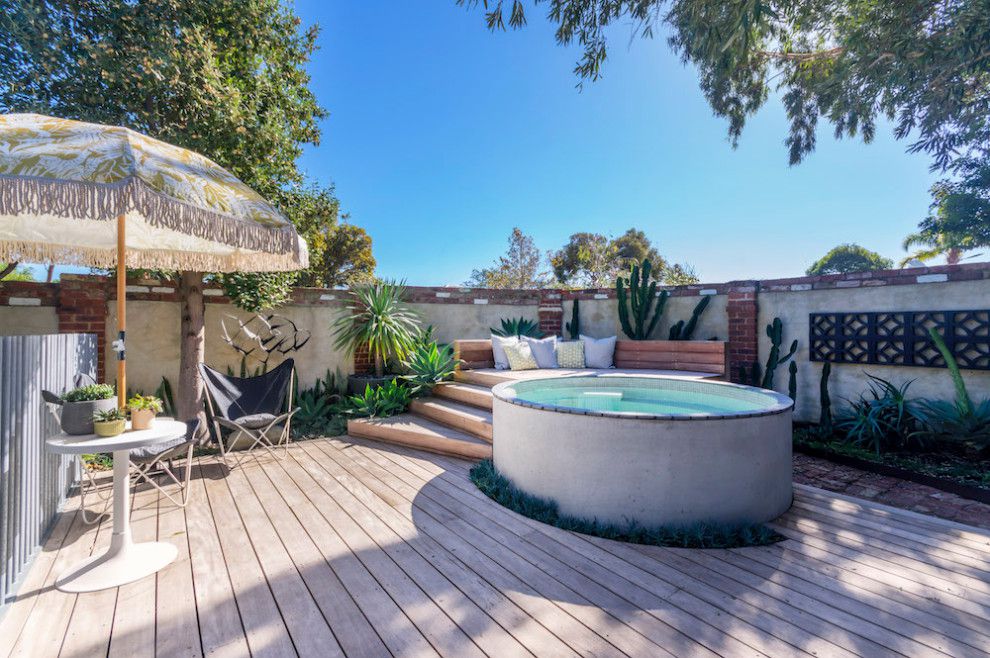Step into the crystal-clear waters of knowledge as we dive deep into the realm of pool cartridge filters. Discover the intricate inner workings, the advantages they bring, and the disadvantages to consider. Compare them to traditional sand and DE filters, unveiling the secrets of maintenance and effectiveness. With our expert guidance, you'll gain the insight needed to select the perfect cartridge filter for your pool, ensuring optimal filtration and peace of mind. Join us on this enlightening journey of Pool Cartridge Filters 101: How They Work, Pros & Cons, & Your Questions Answered.
Key Takeaways
- Cartridge filters are efficient, easy to use, and popular among pool owners.
- They have a high-efficiency with a large filtration surface area.
- Cartridge filters do not require a multiport or backwash valve.
- Proper filtration helps maintain water clarity and cleanliness.
The Inner Workings of Pool Cartridge Filters
Within the realm of pool maintenance and filtration systems, a comprehensive understanding of the inner workings of pool cartridge filters is essential to ensure optimal pool water quality and cleanliness. Cartridge filters are designed with a simple yet effective filtration element made of spun polyester fibers. These fibers are tightly folded and packed into a cartridge, which can vary in size depending on the filtration needs of the pool. Some systems even utilize multiple cartridges to increase the filtering surface area.
Compared to traditional sand and DE filters, cartridge filters offer several advantages. Firstly, they are highly efficient due to their large filtration surface area. This allows for better trapping and removal of impurities from the pool water. Additionally, cartridge filters do not require a multiport or backwash valve, eliminating the need for complicated plumbing connections. Unlike DE filters, cartridge filters do not require the addition of carcinogenic DE powder or the replacement of heavy sand. These features make cartridge filters easy to use and popular among pool owners.
However, there are a few considerations to keep in mind when using cartridge filters. Firstly, new cartridges can be expensive, and they need to be replaced after a few seasons of use. Additionally, when the tank pressure rises, the cartridges need to be physically cleaned to maintain optimal filtration performance. Despite these minor drawbacks, the advantages of cartridge filters far outweigh the disadvantages.
In the subsequent section, we will delve into the advantages of cartridge filters, highlighting their high efficiency, ease of replacement, and minimal water loss during maintenance.
Advantages of Cartridge Filters
While cartridge filters have a few minor drawbacks, they offer numerous advantages that make them an excellent choice for pool owners. Here are some of the advantages of cartridge filters:
- High-efficiency filtration: Cartridge filters have a large filtration surface area, allowing them to trap more dirt, debris, and impurities from the pool water. This results in cleaner and clearer water for a more enjoyable swimming experience.
- Ease of use: Unlike traditional sand and DE filters, cartridge filters do not require a multiport or backwash valve. This means less complicated maintenance and fewer components to worry about.
- No need for DE or heavy sand: Cartridge filters do not require the use of carcinogenic DE or the laborious task of replacing heavy sand. This makes them a cleaner and easier option for pool owners.
- Simple replacement and access: Cartridge filters are designed for easy replacement. They can be quickly and conveniently removed from the tank for cleaning or replacement, saving time and effort.
Cartridge filters offer several advantages that make them a popular choice among pool owners. However, it is important to consider their drawbacks as well. In the next section, we will discuss the disadvantages of cartridge filters and provide a comprehensive overview of their limitations.
Disadvantages of Cartridge Filters
The disadvantages of cartridge filters include the need for regular replacement of cartridges and potential increase in pump usage and electricity consumption if undersized cartridges are used. Cartridge filters have a limited lifespan and require periodic replacement, typically after a few seasons of use. This can be a drawback for some pool owners who prefer a low-maintenance filtration system. Additionally, cartridges need to be physically cleaned when the tank pressure rises, which can be a time-consuming task.
One of the potential drawbacks of cartridge filters is the higher cost of replacing cartridges compared to other types of filters. New cartridges can be expensive, and the cost of replacements can add up over time. However, it's important to note that the cost of cartridges can vary depending on the brand and quality.
Another disadvantage of cartridge filters is the potential increase in pump usage and electricity consumption if undersized cartridges are used. If the cartridge is too small for the pool's filtration needs, the pump may need to work harder and run for longer periods to maintain adequate water circulation. This can result in increased electricity consumption and higher energy costs.
To summarize the disadvantages of cartridge filters, refer to the table below:
| Cartridge Filter Cons |
|---|
| Regular replacement of cartridges |
| Potential increase in pump usage and electricity consumption if undersized cartridges are used |
| Higher cost of replacing cartridges |
| Need for physical cleaning of cartridges |
Despite these disadvantages, cartridge filters remain a popular choice among pool owners due to their high efficiency, ease of use, and minimal water wastage compared to traditional sand and DE filters. It's important for pool owners to consider these drawbacks and weigh them against the benefits before deciding on the best filtration system for their pool.
Comparing Cartridge Filters to Sand Filters
One key difference between cartridge filters and sand filters is the need for routine backwashing in sand filters. When comparing cartridge filters to sand filters, there are several factors to consider:
- Maintenance: Cartridge filters require less maintenance compared to sand filters. Sand filters need to be regularly backwashed to remove accumulated debris and contaminants from the filter media. This process involves reversing the flow of water through the filter, which can waste water and chemicals. Cartridge filters, on the other hand, do not require backwashing. Instead, the cartridges need to be physically cleaned when the pressure inside the tank rises, which can be done by simply rinsing them with a hose.
- Filtration Efficiency: Both cartridge filters and sand filters are effective at filtering out debris and contaminants from pool water. However, cartridge filters generally have a larger filtration surface area, allowing them to capture smaller particles and provide a higher level of filtration efficiency.
- Ease of Use: Cartridge filters are easier to service compared to sand filters. With cartridge filters, there is no need to deal with the laborious task of replacing sand or adding Diatomaceous Earth (DE) like in sand filters. Cartridges can be easily replaced when they become worn out or dirty.
- Cost: Cartridge filters may have a higher upfront cost compared to sand filters, as they require the purchase of replacement cartridges. However, the long-term cost of maintenance and operation can be lower with cartridge filters, as there is no need for backwashing or the addition of DE.
Comparing Cartridge Filters to DE Filters
When comparing cartridge filters to DE filters, it is important to consider the drawbacks of DE filters and the advantages of cartridge filters. DE filters require the addition of DE, which can be messy, and the grids need to be coated with DE for effective filtration. On the other hand, cartridge filters do not require DE and are a cleaner and easier alternative. Additionally, cartridge filters have a longer cleaning cycle and do not require backwashing, making them a convenient choice for pool owners.
DE Filter Drawbacks
DE filters have several drawbacks when compared to cartridge filters, making cartridge filters a more attractive option for pool owners. Here are some of the drawbacks of DE filters:
- Messy Maintenance: DE filters require adding Diatomaceous Earth (DE) to coat the grids and filter the water. This process can be messy and time-consuming.
- Higher Cost: DE filters tend to be more expensive than cartridge filters. The initial cost of purchasing DE and the ongoing need for replacement DE can add up over time.
- Complex Cleaning Process: Cleaning DE filters involves a more complex process compared to cartridge filters. The grids need to be disassembled, cleaned, and reassembled, which can be time-consuming and require more effort.
- Environmental Concerns: DE is a fine powder that can pose a health risk if inhaled. Additionally, the process of backwashing DE filters can release DE particles into the environment, potentially causing harm.
Considering these drawbacks, cartridge filters offer a cleaner, easier, and more cost-effective alternative to DE filters.
Advantages of Cartridge Filters?
Several advantages can be observed when comparing cartridge filters to DE filters in terms of their performance and maintenance. One of the main benefits of cartridge filters is their high-efficiency with a large filtration surface area. This allows them to effectively trap and remove even the smallest particles from the pool water. Additionally, cartridge filters do not require the use of Diatomaceous Earth (DE), which can be messy and require additional maintenance. Cartridge filters are also easier to clean and maintain compared to DE filters, as they simply require physical cleaning when the tank pressure rises. These advantages make cartridge filters a cleaner, more efficient, and easier alternative to DE filters. Now, let's move on to the next section to discuss considerations for choosing the right cartridge filter.
Considerations for Choosing the Right Cartridge Filter
When choosing the right cartridge filter for your pool, there are several important considerations to keep in mind. First, ensure that the cartridge size is sufficient for proper filtration, as undersized cartridges may require more pump usage and higher electricity consumption. Additionally, consider the lifespan and replacement frequency of the cartridges, as this will impact long-term maintenance costs. By selecting a cartridge filter that suits the size and needs of your pool, you can ensure proper filtration, water clarity, and cleanliness.
Proper Filtration Cartridge Size
One important consideration for choosing the right cartridge filter is ensuring that the cartridge size is adequate for proper filtration. The size of the cartridge filter will directly impact its efficiency in removing debris and contaminants from your pool water. Here are some key factors to consider when selecting the proper filtration cartridge size for your pool:
- Pool size: The size of your pool will determine the amount of water that needs to be filtered. Larger pools will require larger cartridge filters with a higher filtration capacity.
- Filtration needs: Consider the specific needs of your pool, such as the presence of trees, vegetation, or heavy pool usage. These factors will determine the level of filtration required and influence the size of the cartridge filter.
- Flow rate: The flow rate of your pool pump should match the flow rate recommended by the cartridge filter manufacturer for optimal filtration performance.
- Maintenance: Smaller cartridge filters may require more frequent cleaning and replacement, whereas larger filters can handle more debris before needing maintenance.
Pump Usage and Electricity
In determining the right cartridge filter for your pool, it is essential to consider the pump usage and electricity consumption associated with different filter options. Cartridge filters are known for their efficiency and ease of use, but it is important to ensure that the chosen filter is compatible with your pool equipment to optimize energy consumption. To help you make an informed decision, here is a table comparing the pump usage and electricity consumption of different cartridge filter options:
| Cartridge Filter Model | Pump Usage | Electricity Consumption |
|---|---|---|
| Model A | Low | Low |
| Model B | Medium | Medium |
| Model C | High | High |
Lifespan and Replacement Frequency
To ensure optimal performance and maintenance of your pool, it is imperative to consider the lifespan and replacement frequency when selecting the right cartridge filter. Proper cartridge filter maintenance plays a crucial role in keeping your pool clean and clear. Here are some key considerations to keep in mind:
- Lifespan: Cartridge filters typically last for a few seasons, but the actual lifespan can vary depending on factors such as water quality, usage, and maintenance.
- Replacement Frequency: It is recommended to replace the cartridge filter when it becomes worn out or when the pressure gauge indicates a significant increase in tank pressure.
- Regular Cleaning: In addition to replacement, cartridge filters also require regular cleaning to remove debris and ensure efficient filtration.
- Maintenance Schedule: Establishing a maintenance schedule for cartridge filter cleaning and replacement will help ensure that your pool stays clean and healthy.
Understanding the lifespan and replacement frequency of cartridge filters is essential for maintaining a well-functioning pool filtration system. Now, let's delve into understanding proper filtration with cartridge filters.
Understanding Proper Filtration With Cartridge Filters
While cartridge filters offer efficient and easy filtration for pool owners, understanding proper filtration techniques is crucial to maintaining water clarity and cleanliness. Swimming pool filtration is essential for removing debris, contaminants, and impurities from the water, ensuring a safe and enjoyable swimming experience.
To help you understand the importance of proper filtration, here are three key factors to consider:
- Filtration Efficiency: Cartridge filters are known for their high-efficiency filtration due to their large surface area. The tightly packed polyester fibers trap even the smallest particles, leaving your pool water clean and clear. However, it's essential to choose the right cartridge size for your pool to ensure optimal filtration performance.
- Maintenance and Cleaning: Regular maintenance and cleaning of the cartridge filter are necessary to maintain its effectiveness. As the filter collects debris and contaminants, the pressure inside the tank increases. When the pressure rises by 8-10 psi above the starting pressure, it's time to clean the cartridge. Cleaning involves removing the cartridge, rinsing it with a hose, and occasionally using a filter cleaner to dissolve any stubborn residues.
- Replacement Frequency: While cartridge filters have a longer lifespan compared to sand and DE filters, they will eventually need replacement. The frequency of replacement depends on various factors such as pool size, usage, and water quality. It is recommended to replace the cartridge every 2-3 years or when it becomes too worn or damaged.
To summarize the importance of proper filtration with cartridge filters, refer to the table below:
| Factors to Consider | Importance |
|---|---|
| Filtration Efficiency | High-efficiency filtration for clean and clear water |
| Maintenance and Cleaning | Regular cleaning to maintain filter effectiveness |
| Replacement Frequency | Replace cartridge when worn or damaged |
Lifespan and Replacement Frequency of Cartridges
The lifespan of cartridge filters and the frequency at which they need to be replaced depend on various factors, such as pool size, usage, and water quality. Understanding these factors can help you determine the optimal replacement frequency for your cartridges. Here are a few key points to consider:
- Pool Size: The size of your pool plays a significant role in determining the lifespan of your cartridge filters. Larger pools tend to accumulate more debris and contaminants, which can lead to faster clogging of the cartridges. Smaller pools, on the other hand, may require less frequent cartridge replacements.
- Usage: How often your pool is used and the level of activity in the pool can impact the lifespan of your cartridges. Pools that are frequently used or experience high levels of activity, such as parties or gatherings, may require more frequent cartridge replacements due to increased debris and contaminants.
- Water Quality: The quality of your pool water also influences the lifespan of your cartridge filters. If your water source contains a high concentration of minerals or other impurities, your cartridges may become clogged more quickly. Regular testing and proper water treatment can help maintain the longevity of your cartridges.
- Maintenance: Proper maintenance, including regular cleaning of the cartridges, can extend their lifespan. When the pressure inside the filter tank rises, indicating a decrease in filtration efficiency, it is important to clean or replace the cartridges promptly to ensure optimal performance.
Finding the Perfect Cartridge Filter for Your Pool Needs
When selecting a cartridge filter for your pool, it is essential to consider factors such as pool size, filtration requirements, and maintenance preferences. Cartridge filters are available in various sizes to accommodate different pool sizes. It is crucial to choose a filter that has the appropriate cartridge size for proper filtration. Undersized cartridges may require more pump usage and result in higher electricity consumption.
Additionally, understanding your filtration requirements is important in finding the perfect cartridge filter. Consider factors such as the amount of debris in your pool, the frequency of pool usage, and the desired water clarity. Cartridge filters are known for their high-efficiency and large filtration surface area, making them suitable for pools with moderate to heavy debris accumulation.
Maintenance preferences also play a role in selecting the right cartridge filter. Cartridge filters do not require backwashing like sand filters, which means there is no loss of pool water and chemicals. Instead, cartridges need to be physically cleaned when the tank pressure rises. This cleaning process involves removing the cartridges and hosing them down to remove debris. Some pool owners prefer this method as it is a simpler and cleaner alternative to backwashing.
Frequently Asked Questions
How Often Should I Clean or Replace the Cartridge in My Pool Cartridge Filter?
The frequency of cleaning or replacing the cartridge in a pool cartridge filter depends on several factors. It is recommended to clean the cartridge when the tank pressure rises by 8-10 psi above the initial reading. However, the specific cleaning and replacement schedule may vary based on the pool's size, usage, and the quality of the filtration system. Regular maintenance, including routine cleaning and replacement, is essential to ensure optimal filtration and longevity of the cartridge filter.
Can I Use a Cartridge Filter for an Above-Ground Pool?
Yes, cartridge filters can be used for above-ground pools. Cartridge filters are a popular choice for pool owners due to their efficiency and ease of use. They use spun polyester fibers as the filtration element, which are tightly folded and packed into a cartridge. These filters do not require the laborious task of backwashing, and they have a large filtration surface area. However, it is important to ensure that the cartridge size is sufficient for proper filtration and to consider the lifespan and replacement frequency of the cartridges.
Are Cartridge Filters Suitable for Pools With a High Debris Load, Such as Trees or Leaves?
Cartridge filters are suitable for pools with a high debris load, such as trees or leaves. The tightly folded and packed spun polyester fibers of cartridge filters effectively trap and remove debris from the pool water. The large filtration surface area of cartridge filters ensures efficient filtration even with a high debris load. However, it is important to regularly clean and replace the cartridges to maintain optimal performance. Proper maintenance and cartridge replacement frequency should be considered when choosing a cartridge filter for pools with high debris.
Can I Use a Cartridge Filter for a Saltwater Pool?
Yes, you can use a cartridge filter for a saltwater pool. Cartridge filters are a popular choice for pool owners due to their efficiency and ease of use. They utilize spun polyester fibers as the filtration element, which is effective in removing debris and contaminants from the water. Cartridge filters do not require the use of diatomaceous earth (DE) or backwashing, making them a cleaner and simpler option for maintaining water clarity in a saltwater pool.
Are There Any Specific Maintenance Requirements for Cartridge Filters?
Cartridge filters require specific maintenance to ensure optimal performance. Regular cleaning is necessary when the tank pressure rises, requiring the cartridges to be physically cleaned. Additionally, cartridges need to be replaced after a few seasons, as they become less effective over time. It is important to choose the correct cartridge size for proper filtration, as undersized cartridges may result in higher electricity consumption. Following these maintenance requirements will help maintain water clarity and cleanliness in your pool.



